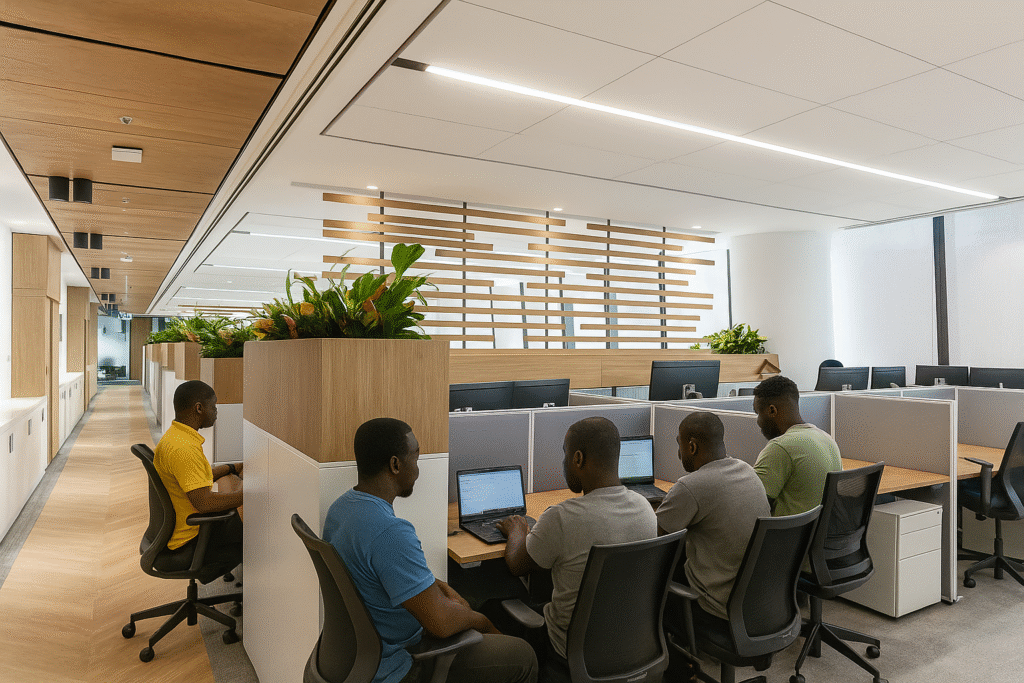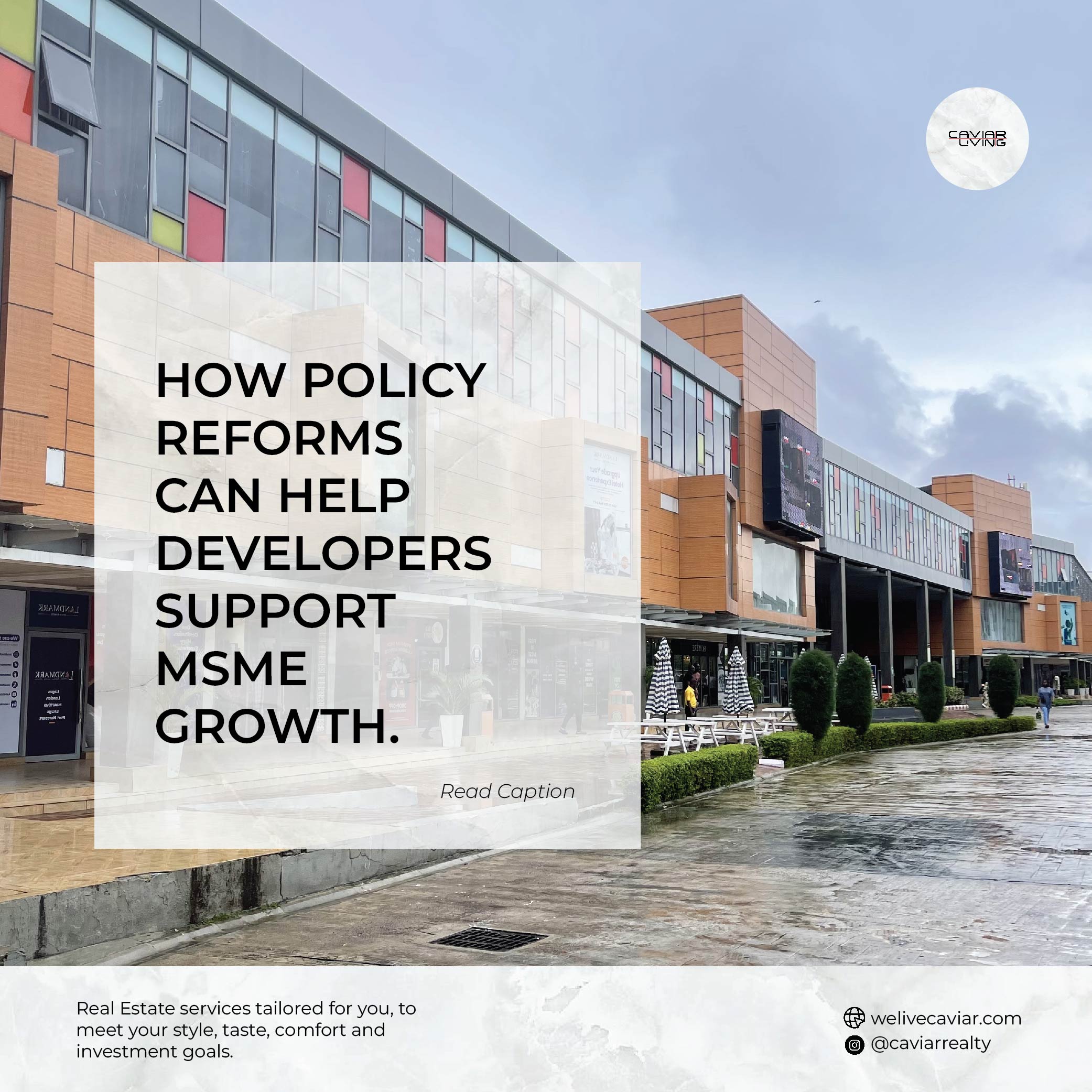
Nigeria’s MSMEs make up 96% of all businesses, contributing significantly to GDP and employment. Yet, one of their biggest obstacles isn’t just financing but in fact struggle with space, infrastructure, and affordability. Through several conversations with micro and small business owners, it was observed that one of their major challenges is finding a suitable location to operate. From high upfront rent demands to inadequate infrastructure, the property market has often served as a barrier rather than a growth enabler for small businesses.
Developers hold the key. They build the physical environments MSMEs depend on (shops, co-working, warehouses, logistics hubs). Policy reforms can incentivise developers to think beyond luxury apartments and create inclusive, functional spaces for MSMEs. Indeed, this is where policy reforms can change the game.
Some Facts:
- Nigerian MSMEs make up 96% of business, contributes 46% to GDP, and employs over 80% of Nigerias’ workforce.
- Abuja has 3.1% of Nigerias MSMEs compared to 7.3%, 6.8%, 6.4% of Lagos, Rivers and Kano respectively where major commercial activities happen the most.
- Construction and RE activities make up 1.7% and 1.6% of work force compared to 25.35, 22.5% and 10.8% for retail/wholesale trade, manufacturing, and education respectively.
Key Policy Reforms to Empower Developers
Financing & Credit: Firstly, there should be credit guarantees that lower developers’ risk in SME projects. Also, government can support fractional real estate investment/crowdfunding schemes, so entrepreneurs can own workspaces instead of renting forever. Furthermore, government backed funds or low interest loans for developers who build SME-focused estates, retail hubs, and co-working spaces.
Land & Planning: Secondly, simplifying land titling, encouraging mixed-use zoning (shop, home, office) as well as fast-tracking approvals for projects that allocate a percentage of space to MSMEs would create more adaptable spaces for entrepreneurs.
Tax Incentives: Next, developers who build affordable SME hubs should enjoy tax breaks as well as VAT reductions on construction materials for SME focused projects. There should also be incentives for developers who integrate renewable energy in MSME estates (reducing running costs).
Infrastructure: Lastly, partnerships between government and private players can deliver SME focused logistics hubs, markets, and co-working spaces with reliable power and internet. Allowing developers to run mini-grids and bill SMEs directly at regulated rates can improve electricity infrastructure. There should also be policy frameworks for developers to create digital ready spaces (fibre internet mandates).
Why does this even matter?
Ultimately, MSMEs win through affordable, reliable, and accessible spaces. Developers win through policy incentives and new market demand. Government wins through job creation, tax revenue, and economic diversification.


Leave a Reply